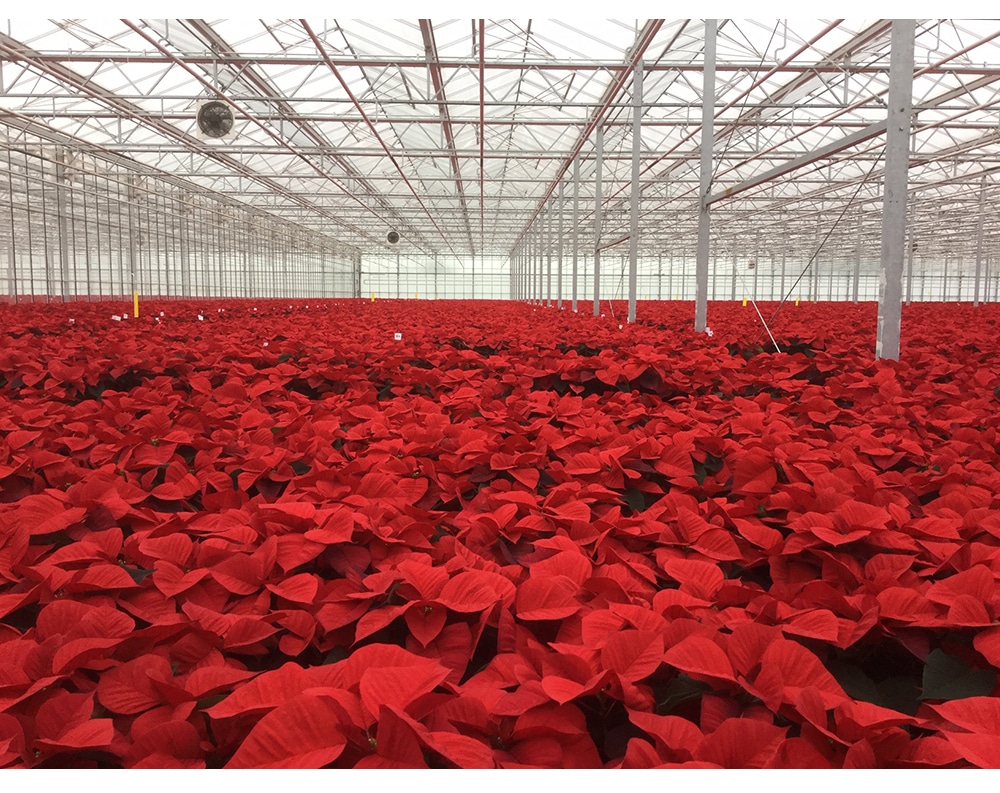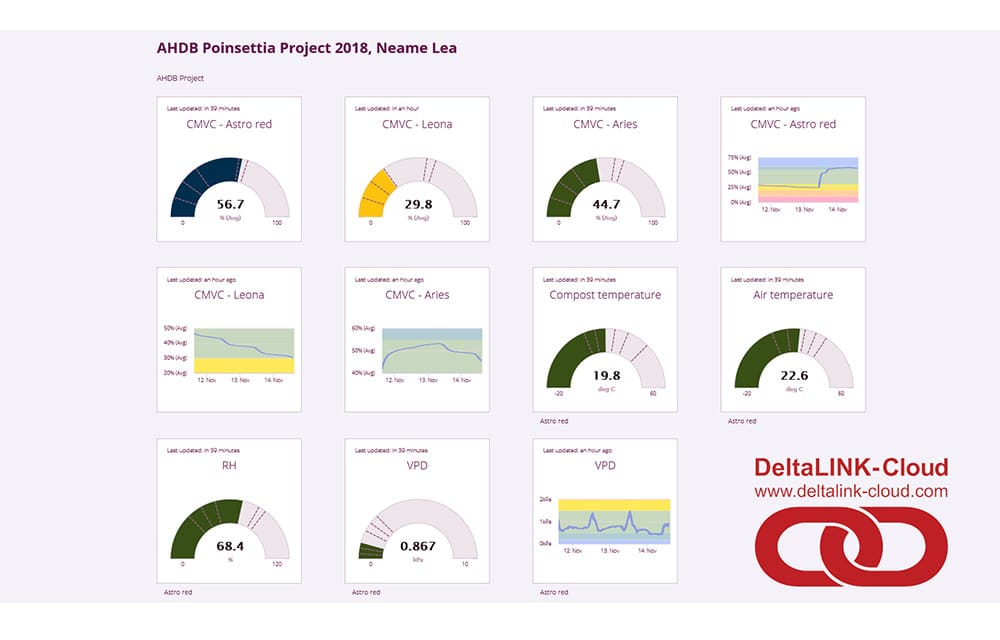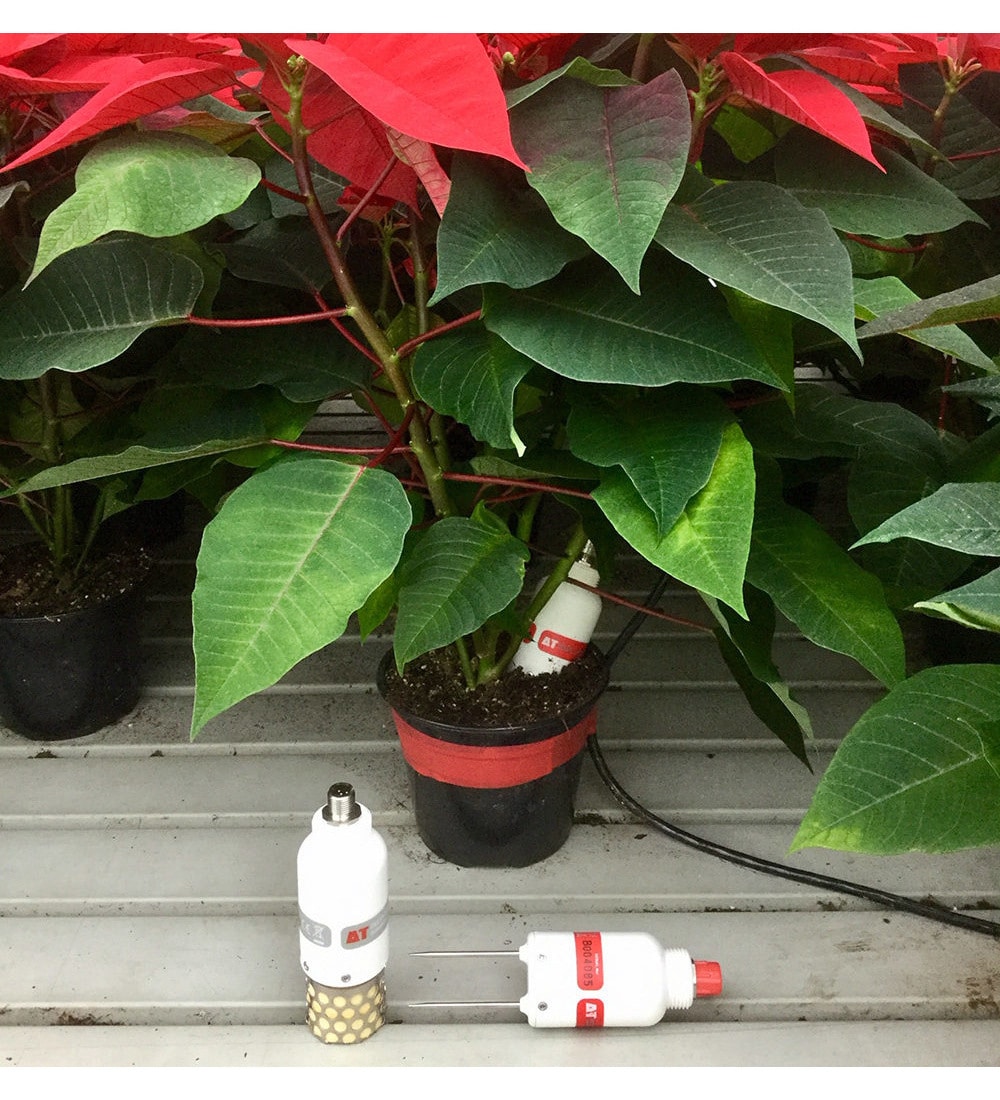Poinsettias, the classic Christmas pot plant, are grown in their thousands in UK nurseries from late July onwards, but growers have to rely on the use of plant growth regulators (PRGs) to ensure that the optimum height and number of bracts is achieved by early December.
With protective environmental legislation threatening to reduce the availability and use of such PGR treatments, a project led by the University of Lincoln and funded by the AHDB for the BPOA Poinsettia Group is investigating non-chemical means of plant growth control.
Work carried out by UK-based NIAB EMR ten years ago showed that poinsettia plant height could be controlled successfully by limiting the availability of water to the plant at key stages during its development. This deficit irrigation approach is now being tested on a commercial scale using new sensor and telemetry technologies developed for the soft fruit industry.

The ongoing ADHB-funded research project (currently in year two) is taking place at Neame Lea Nursery in Spalding, Lincolnshire, and uses deficit irrigation systems based on Delta-T Devices’s SM150T Soil Moisture Sensor, GP2 Data Logger, and DeltaLINK-Cloud remote access data service, to precisely control growing conditions.
The NIAB EMR team, led by Mark Else (HoD, Crop Science and Production Systems) is working closely with Vasile Agache and his team at Neame Lea to scale-up the approach for commercial production. The team have found that by imposing a mild water deficit stress through carefully designed patterns of deficit irrigation, they can achieve height control without the use of PRGs. This new approach has allowed Vasile to grow plants of the optimum, shape and health, but in a more environmentally-friendly and sustainable way.
The Delta-T Devices equipment used in the research enables high precision measurement of compost moisture to inform irrigation decisions. In addition, their DeltaLINK-Cloud online data service allows researchers and growers to view all relevant project data remotely (at any time) on smart phone, laptop or tablet, via colourful and accessible dashboard graphics.

This approach has been developed over the last 3 years, and the results have been highly encouraging.
NIAB EMR’s Mark Else said,
“Having access to real-time data on compost moisture content and the environmental conditions in the glasshouse has enabled us to impose exactly the right degree of water deficit stress at the optimum stage of plant development. Once again, we have produced over 4,000 plants that are within height specifications without any use of PGRs. The next step is to use the Delta-T Devices GP2 system to apply both precision irrigation and deficit irrigation automatically at different stages of crop development. Next year we aim to produce 40,000 plants in this way”.
Dr Martin Goodchild of Delta-T Devices said,
“We are delighted to work with NIAB EMR on this groundbreaking trial for poinsettias – and are proud that our products are enabling the evaluation of novel and more environmentally friendly growing methods. This trial, which employs “Internet of Things” technology, delivers precise, real-time soil moisture data to mobile devices. This feature is likely to become an invaluable irrigation management tool for growers in the future, potentially decreasing industry reliance on chemical growth retardants.”



